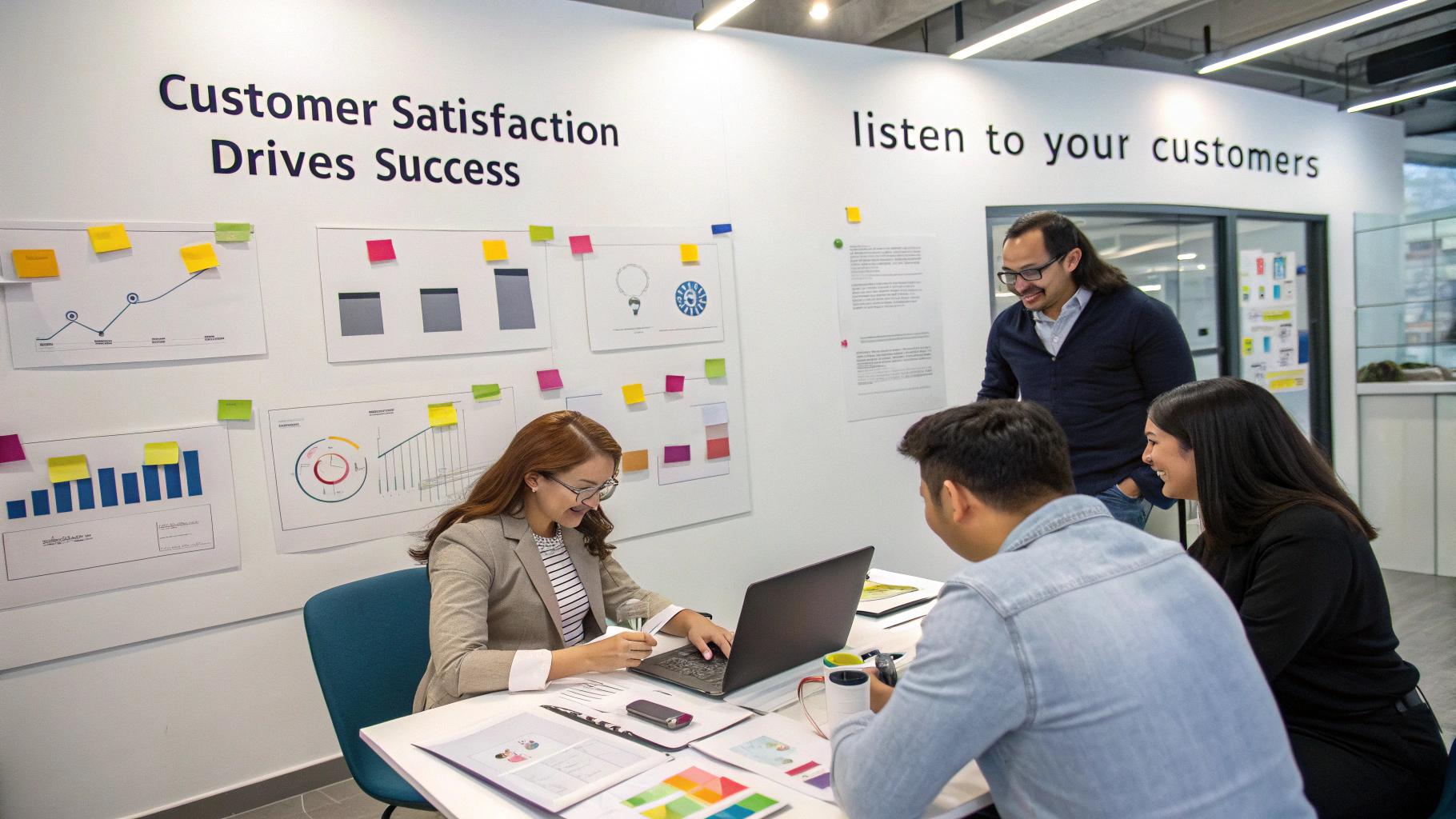
When I first started Starborn Furniture, I encountered numerous challenges in understanding the true needs of customers. Pain, in this case, was the lack of effective communication channels to gather genuine feedback. Our customers needed assurance that their voices mattered. I decided it was time to address this issue head-on and transform feedback into our most powerful tool for enhancing the customer experience.
Feedback is an essential ingredient for strengthening customer experience because it provides real insights into customer needs, preferences, and expectations. At Starborn Furniture, feedback guides our product design, manufacturing processes, and customer interactions. This approach not only improves product quality and service delivery but also builds stronger trust with our customers. By constantly listening and adapting, we ensure that both retailers and end-users receive the products and services that truly align with their desires.
How Does Feedback Strengthen Certification Trust?
Feedback plays a crucial role in strengthening trust in certification. Many independent retailers, particularly in the UK and Germany, face challenges with transparency in certification processes. This is where feedback helps identify these pain points in the industry. At Starborn Furniture, I have implemented the BSCI audit process visualization1. By doing this, we make sure that retailers are fully aware of our compliance with EN 12520/12521 standards.

I remember working with a UK retailer who struggled with delivery reliability due to unclear certifications. By partnering with us and utilizing our certified furniture, they increased their delivery reliability by 20%. This achievement was not only a win for our partner but also confirmed the power of transparent certification processes initiated through effective feedback.
How to Ensure Production Adaptability through Feedback?
Production adaptability is more important than ever in the fast-paced world of design. Designers often struggle to adapt their creations quickly to market changes, hindering creativity. At Starborn Furniture, I introduced a C2M (Consumer-to-Manufacturer) product selection data dashboard. This innovative feature enables real-time design validation based on feedback, ensuring that creativity is never stifled by changing market demands.
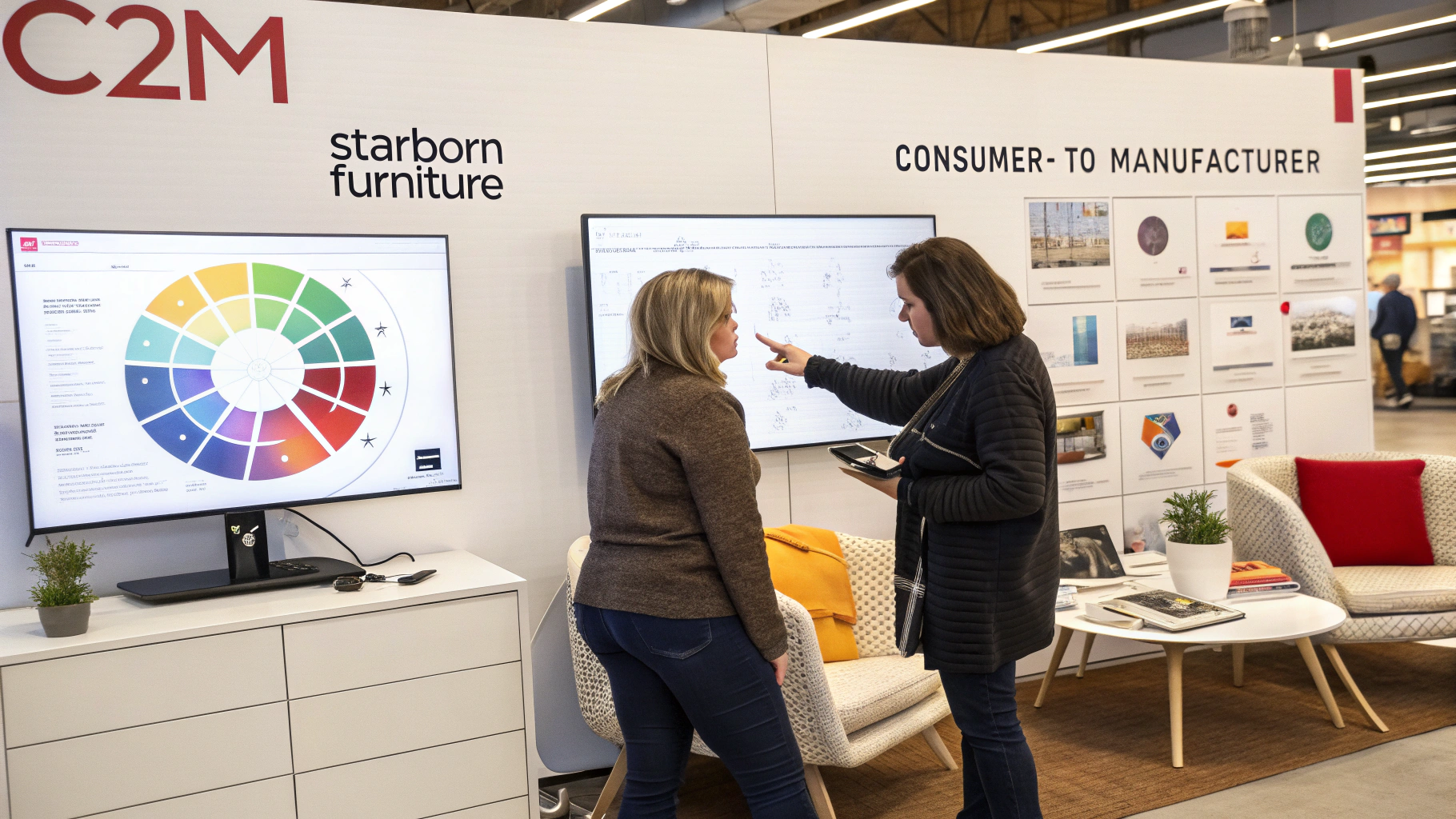
A notable example involves a German designer who collaborated with us. Thanks to our flexible scheduling solutions and real-time feedback mechanisms, they were able to introduce a new collection within just a month. This rapid adaptability wouldn't have been possible without the seamless feedback integration into our design processes.
Feedback as a Gateway to Supply Chain Transparency
Small retailers require transparency to differentiate their offerings yet often face opaque supply chains. Feedback serves as a vital gateway to enhance this transparency. At Starborn, we've implemented transparent feedback loops that highlight our commitment to supply chain transparency aligned with BSCI standards.
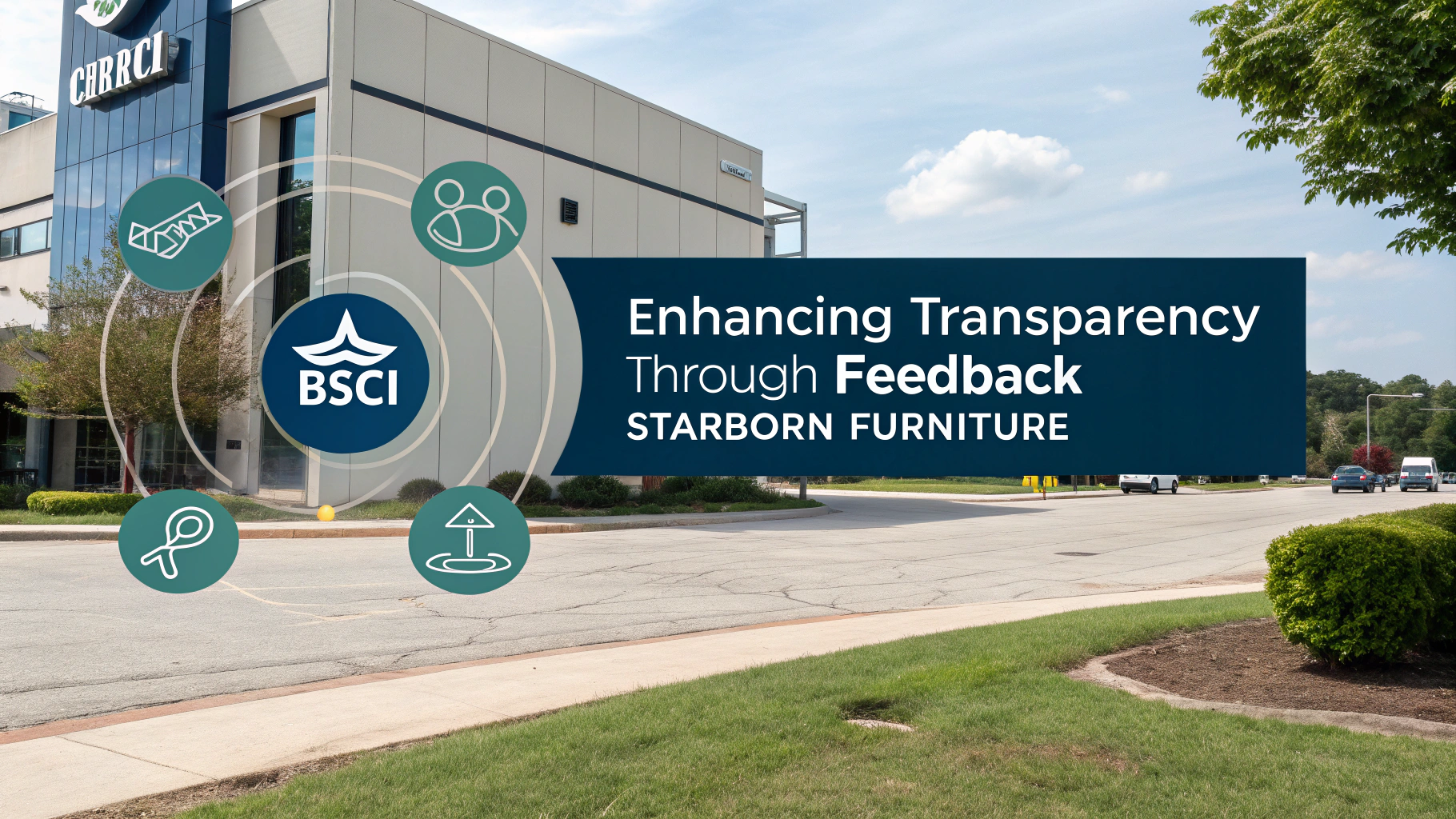
One success story comes from France, where a retailer accessed detailed supply pathways after incorporating our feedback-driven solutions. As a result, they experienced a 15% reduction in confusion and costs, demonstrating the tangible benefits of feedback in achieving supply chain clarity.
How Does Feedback Drive Sustainable Material Selection?
Feedback is instrumental in driving sustainable material selection. Many independent retailers face pressure to provide sustainable options yet lack feedback on material preferences. At Starborn, we offer a feedback-informed sustainable materials dashboard2. This tool aligns choices with FSC standards, ensuring that sustainability is at the forefront of our process.
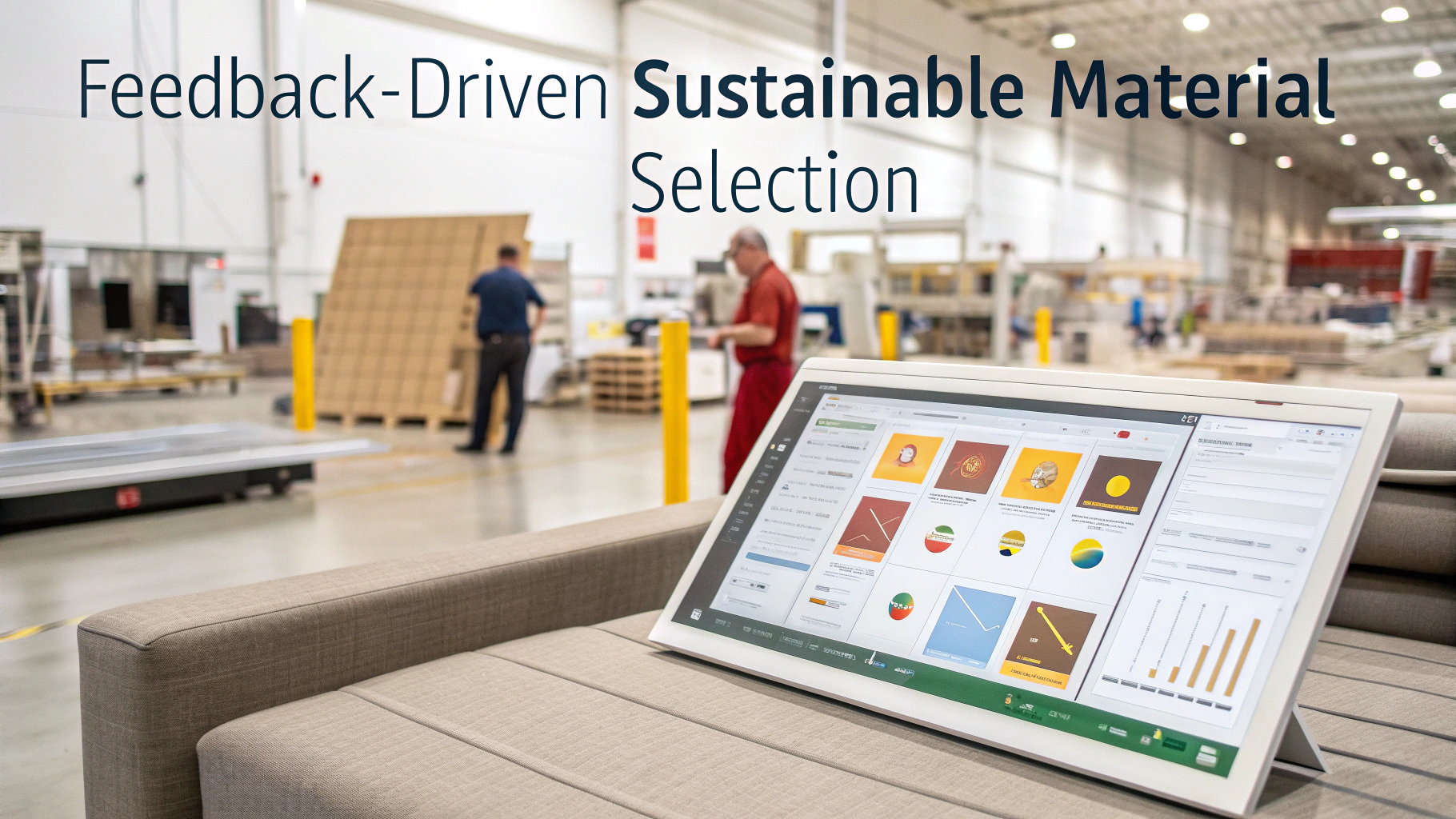
A small retailer in France benefited from this system by revamping 30% of their stock sustainably. This change, fueled by customer feedback, led to increased foot traffic, illustrating the profound impact of aligning product offerings with consumer preferences.
How to Facilitate Customization through Client Interaction?
Customization has become a key aspect in meeting varied customer needs, yet small retailers often struggle due to limited engagement strategies. At Starborn Furniture, we provide a customer interaction education toolkit3 designed to enhance feedback-driven customization. This tool enriches the relationship between customers and retailers, fostering more personalized experiences.
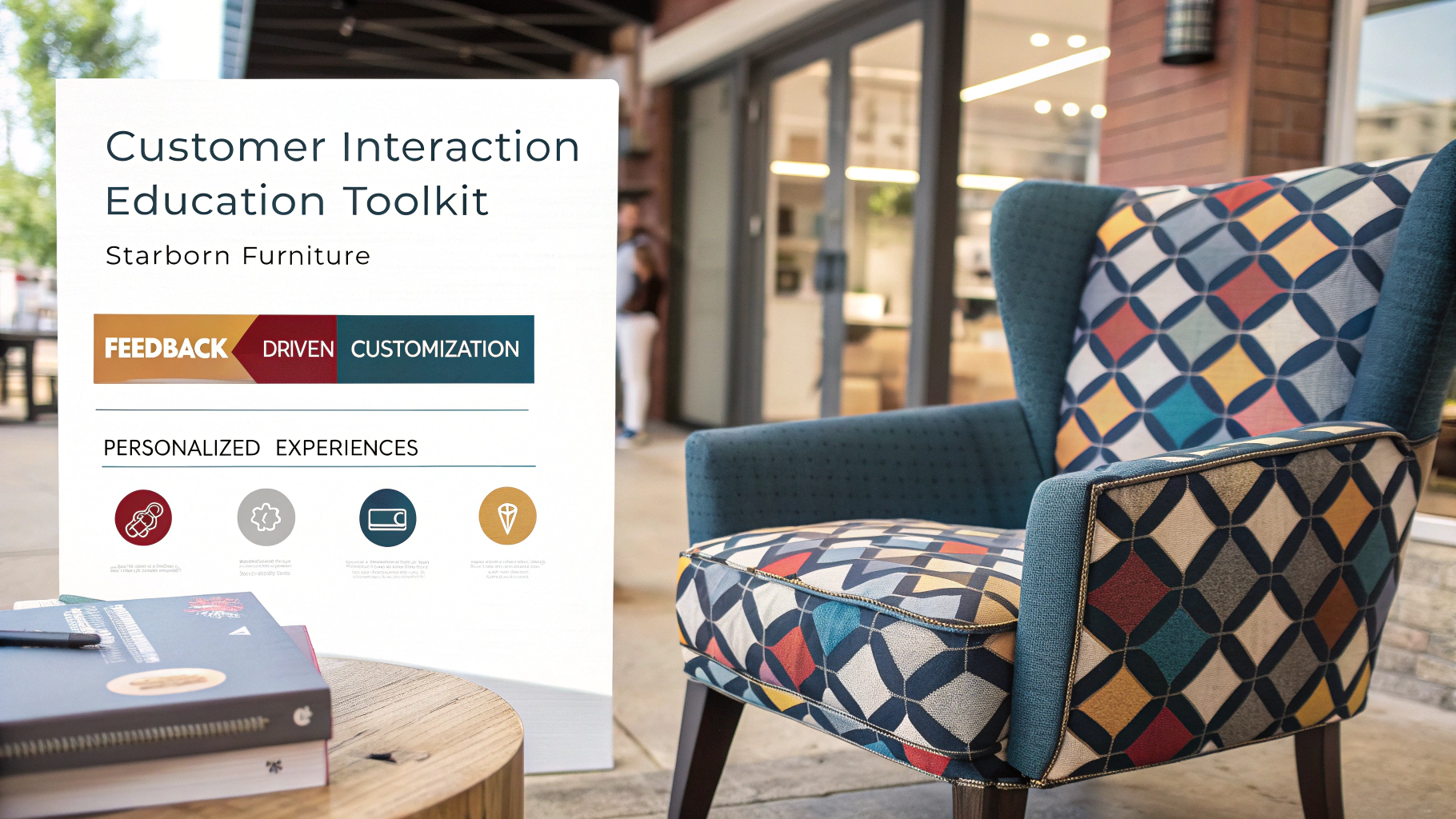
A small German furniture shop I worked with used this toolkit and experienced a 25% increase in sales. This success underscores the value of engaging clients through effective feedback mechanisms to drive meaningful customization.
Leveraging Feedback for Long-Term Value Assurance
In markets like Dubai, long-term value and cultural relevance are crucial. Retailers need products that assure these elements, and feedback provides the necessary insights. At Starborn, we've adapted our designs to meet JIS standards through feedback. This ensures our products' durability aligns with market demands and customer expectations.
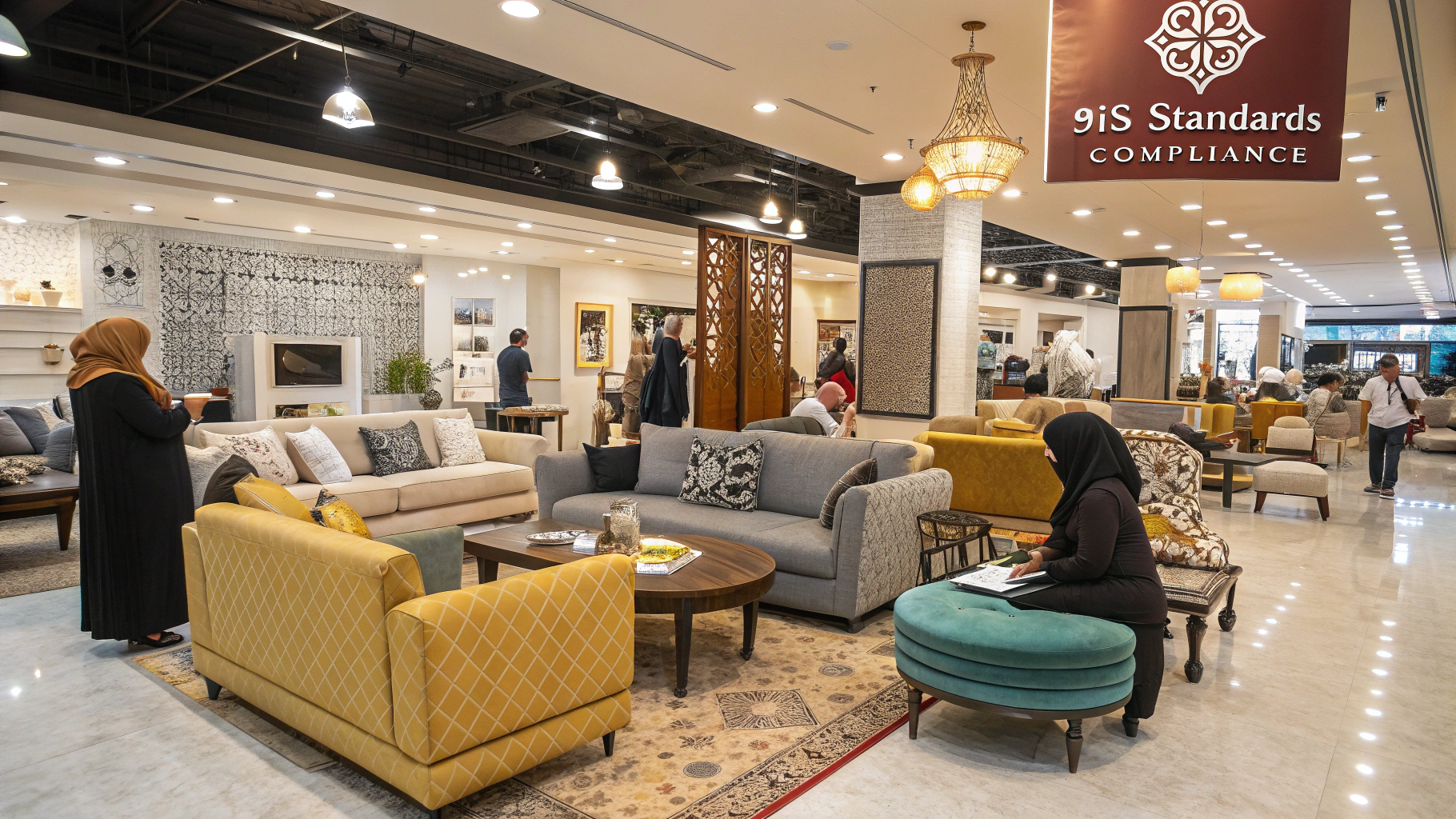
I recall a Dubai retailer who leveraged our feedback mechanisms to revamp their product longevity strategies. The result was a 20% increase in product lifespans, highlighting how feedback-driven insights can enhance long-term value assurance.
How Does Feedback Enhance Ecological Collaboration?
Designers often seek seamless collaboration across the production chain yet lack cohesive platforms. Feedback can enhance ecological collaboration by connecting the dots. Starborn's platform-based solutions link designers, producers, and retailers. This fosters collaborative efforts for eco-friendly initiatives.

In Europe, a brand managed to achieve a 30% reduction in waste thanks to collaborative efforts powered by feedback. This transformative result demonstrates the potential for feedback to drive ecological improvements across the production chain.
Conclusion
Feedback is the cornerstone of improving customer experience at Starborn Furniture. It strengthens trust, enhances adaptability, ensures transparency, and drives sustainability. By integrating feedback into every aspect of our operations, we create valuable, long-lasting relationships with our customers, elevating their overall experience.
-
Explore this link to understand how BSCI audit process visualization can improve transparency and trust in certification processes. ↩
-
Discover how this innovative dashboard can help retailers align their products with sustainable practices and consumer preferences. ↩
-
Learn how this toolkit can enhance customer engagement and drive sales through effective feedback mechanisms. ↩

